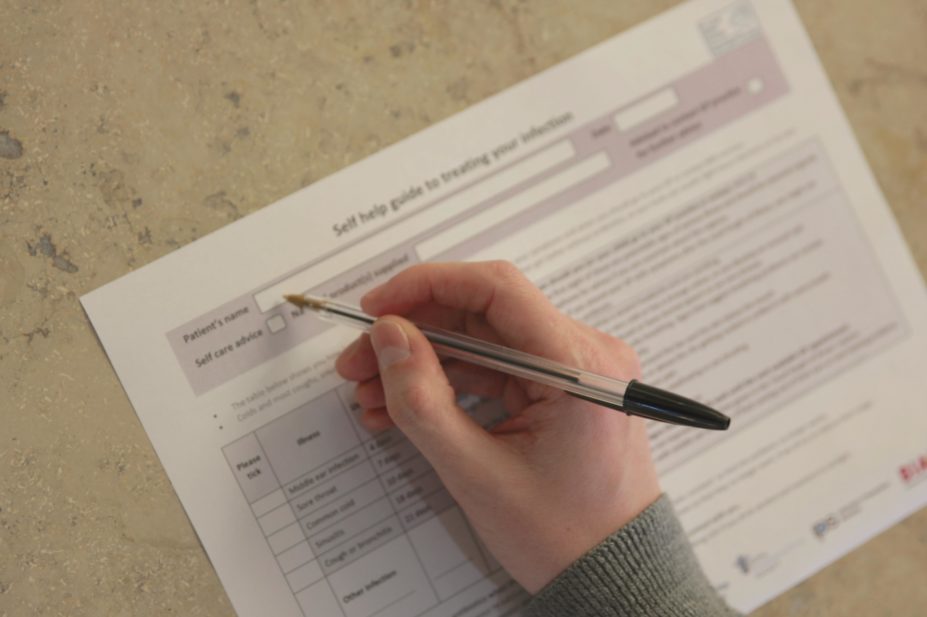
The role of pharmacists in the appropriate use of antibiotics is Scotland’s focus for the European Antibiotic Awareness Day 2014 (EAAD), held annually on 18 November.
The day is an excellent platform for raising professional and public awareness of the problem of antimicrobial resistance — a major public health issue and a significant threat to the future of healthcare.
The Scottish Antimicrobial Prescribing Group, which is hosted by the Scottish Medicines Consortium, is organising EAAD activities for Scotland this year, and has produced a raft of resources to support healthcare workers in GP practices and hospitals. The Scottish government has printed and distributed these resources to antimicrobial management teams in NHS boards in Scotland.
Antimicrobial pharmacists working within these teams have already influenced hospital practice. They have also worked with prescribing advisers in primary care to improve antimicrobial prescribing and reduce unnecessary use of antibiotics.
Now, the focus is turning to community pharmacy. The Royal Pharmaceutical Society (RPS) in Scotland, Community Pharmacy Scotland and Pharmacy Voice have come together to distribute a resource pack to all community pharmacies in Scotland during the week beginning 17 November 2014. The pack comprises a poster, patient information leaflets, quizzes and crosswords from Public Health England’s Antibiotic Guardian campaign, and — significantly — a patient self care guide.
This guide to treating common, self-limiting infections was initially developed by the Royal College of General Practitioners and is designed to support GPs in any decision not to prescribe an antibiotic where it is not clinically indicated. It aims to manage patients’ expectations of illness duration and highlight potentially serious symptoms that warrant further review.
Endorsed by various key professional organisations, it has now been adapted for use by community pharmacy within Scotland. The guide can be used as a personalised handheld record to document the advice and pharmacy medicine recommended, and as a referral tool for patients about whom the pharmacist has concerns.
The guide was well received at a meeting between GPs and pharmacists at the RPS offices in Edinburgh in August 2014. Both professions welcomed it as a way to provide consistent messages to support self care of common illnesses and when medical review is required. People present all year round at the pharmacy and at different stages in their illness, and this guide can support pharmacists’ assessments and appropriate referral if required.
Community pharmacists can use the resource pack materials to raise awareness of antimicrobial resistance among patients and the public. Pharmacists should review the self care guide and discuss its use in partnership with local GP practices. They should also work to support patients and carers to manage self-limiting infections without antibiotics, and be prepared to challenge misconceptions.
In addition, pharmacists and the pharmacy team are encouraged to take a continuing professional development (CPD) course to increase their knowledge about antibiotics and management of infection.
In a recent report, ‘New Medicines, Better Medicines, Better Use of Medicines’, the RPS committed to improving antimicrobial stewardship, and this initiative will help to implement the report’s objectives. The RPS will also host a Scottish Parliamentary reception on 18 November 2014 to highlight antimicrobial stewardship and the need for new antimicrobials.
Meanwhile, we invite pharmacists to join the Antibiotic Guardian pledge campaign, to take personal and collective steps to keep antibiotics active, and to promote the message and the website to colleagues and patients and encourage them to pledge as well.
Pharmacists and local GPs are encouraged to give joint feedback on the effectiveness and ease of use of the self care guide to annamarie.mcgregor@rpharms.com.
For more on the EAAD visit: http://www.scottishmedicines.org.uk/SAPG/European_Antibiotic_Awareness_Day/European_Antibiotic_Awareness_Day
You may also be interested in
Long service of members

Membership fees 2022
